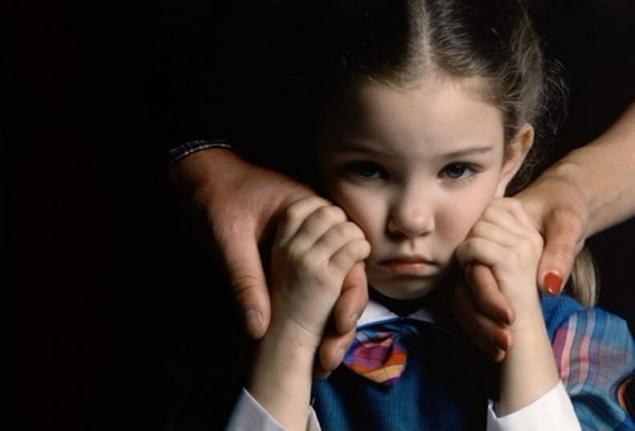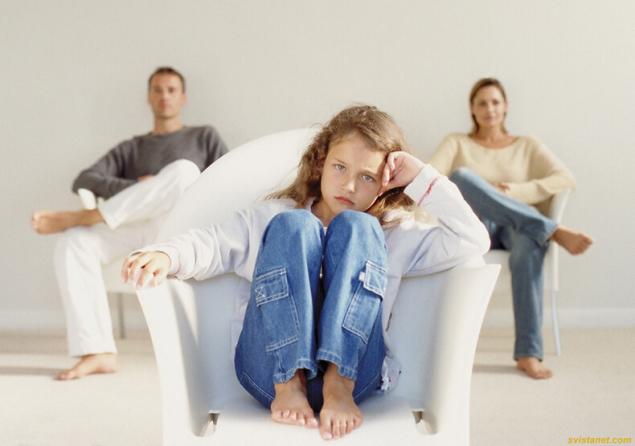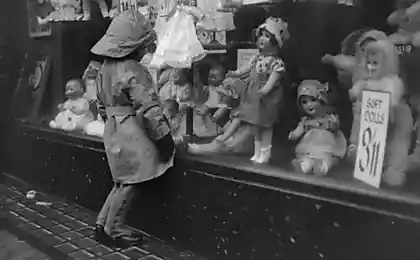523
Incomplete family: Share the good with the child!
What is an Incomplete Family?
Much has changed in our society, including the family and its forms. The number of children born out of wedlock has increased and the number of divorces has increased. As a result, the so-called incomplete families have become habitual.
Single-parent families are the category of families where a single parent lives with a child or children of minor age and bears primary responsibility for children: moral and material.
The view of a psychologist: the main problems in an incomplete family
In Russia, single-parent families are overwhelmingly mothers with children. Cases where fathers remain with minor children are still isolated. However, the problems in single-parent families of both types are similar.
The main difficulty lies in the fact that a child born to two parents and destined by nature to gain experience from two, one parent is “out of reach”.
And if we take a family – albeit incomplete formally, but one where the second parent is close, “on the pick-up”, supports the child morally and financially, sees him often and relations are in order – then this family is most likely all right, and she has no more difficulties than any complete one.
We will talk about the difficulties in a truly incomplete family.
The absence of a second parent is usually associated with a number of problems:
- External perception of the family: the questions addressed to the child “Where is your father?”, “Why does mom not live with you?”, etc., in case of a single parent “well, of course, the child is growing without a mother” or “fatherlessness, what to expect from him.”
- An internal feeling of inferiority of the family: for an adult it is often a lack of support and a feeling of loneliness, worries about a possible relationship with a new partner, thoughts like “that I can give the child one”, etc.
For a child, it can be low self-esteem, constant thoughts that “something is wrong with me since my mother left me”, “Dad left us, and now he is bad, and I look like him and miss him, so I’m bad too”.
- Single parent fatigue: moral and physical, lack of money, time and other resources. This is interrelated with the psyche and can become both a cause and a consequence of psychological problems.

How to cope with difficulties
Directing the view on the family (albeit called incomplete) as a whole and not focusing separately on the problems of the child or single parent, you can identify several rules that will allow you to balance the situation.
1. Adult needs are always more important.
Now this approach is not in fashion, but it is. It is on the adult that the child or children rely, it is the adult who should be able to cope with all the difficulties of an incomplete family and others. Therefore, the focus of our attention is primarily an adult.
What can a parent who is alone with a child (or children) do for themselves?
We have to go from simple to complex. First try to satisfy the basic physiological needs – food, sleep, pleasant physical activity. It is necessary to learn for yourself that it is important not only for the parent, but also for the child - to be a reliable support and set a worthy example. You do not want your child to grow up and, like you, do not sleep, do not pay attention to your health and do not take care of yourself?
It is also necessary to notice and pay attention to the needs of an adult in communication, support, development, etc. This way you will not only replenish your resources and teach the same child, but also feel more confident in society – at school, at work and among friends.
2. Share the good with the child.
This is about what you can share with your child, such as walking in the park, going to a photo exhibition, or skating with friends. And also your good mood, interesting thoughts and ideas, plans and dreams.
3. Be sincere with the child.
You don’t have to share your anger with your kids about your ex-husband or your fear that you won’t live on that salary. But talk about the reason for your mood!
Children are very sensitive, but they are not psychics. If you feel bad, but you keep silent about the reasons, the child may associate it with himself, not with the salary. And since he learned from you that you don't need to share problems, you can learn about it from him in 20 years, when he has his psychotherapy.

4. Give your child the opportunity to be “whole” – let them remember and love the absent parent.
This gift for many looks almost luxurious. And that's why it's not necessary. “Feed and clothe, while this ... bad man is satisfied with his life!” It's not about luxury...
20 phrases that a mother should not say to her adult daughter Enjoy the kids while they need us.
Sometimes it feels like a long and difficult journey, but it is the one that is most grateful and that is how not only children blossom, but also your relationship with them.
Author: Arina Pokrovskaya
Source: apokrov.ru/psikhologiya/psikhologicheskie-stati/227-nepolnaya-semya
Much has changed in our society, including the family and its forms. The number of children born out of wedlock has increased and the number of divorces has increased. As a result, the so-called incomplete families have become habitual.
Single-parent families are the category of families where a single parent lives with a child or children of minor age and bears primary responsibility for children: moral and material.
The view of a psychologist: the main problems in an incomplete family
In Russia, single-parent families are overwhelmingly mothers with children. Cases where fathers remain with minor children are still isolated. However, the problems in single-parent families of both types are similar.
The main difficulty lies in the fact that a child born to two parents and destined by nature to gain experience from two, one parent is “out of reach”.
And if we take a family – albeit incomplete formally, but one where the second parent is close, “on the pick-up”, supports the child morally and financially, sees him often and relations are in order – then this family is most likely all right, and she has no more difficulties than any complete one.
We will talk about the difficulties in a truly incomplete family.
The absence of a second parent is usually associated with a number of problems:
- External perception of the family: the questions addressed to the child “Where is your father?”, “Why does mom not live with you?”, etc., in case of a single parent “well, of course, the child is growing without a mother” or “fatherlessness, what to expect from him.”
- An internal feeling of inferiority of the family: for an adult it is often a lack of support and a feeling of loneliness, worries about a possible relationship with a new partner, thoughts like “that I can give the child one”, etc.
For a child, it can be low self-esteem, constant thoughts that “something is wrong with me since my mother left me”, “Dad left us, and now he is bad, and I look like him and miss him, so I’m bad too”.
- Single parent fatigue: moral and physical, lack of money, time and other resources. This is interrelated with the psyche and can become both a cause and a consequence of psychological problems.

How to cope with difficulties
Directing the view on the family (albeit called incomplete) as a whole and not focusing separately on the problems of the child or single parent, you can identify several rules that will allow you to balance the situation.
1. Adult needs are always more important.
Now this approach is not in fashion, but it is. It is on the adult that the child or children rely, it is the adult who should be able to cope with all the difficulties of an incomplete family and others. Therefore, the focus of our attention is primarily an adult.
What can a parent who is alone with a child (or children) do for themselves?
We have to go from simple to complex. First try to satisfy the basic physiological needs – food, sleep, pleasant physical activity. It is necessary to learn for yourself that it is important not only for the parent, but also for the child - to be a reliable support and set a worthy example. You do not want your child to grow up and, like you, do not sleep, do not pay attention to your health and do not take care of yourself?
It is also necessary to notice and pay attention to the needs of an adult in communication, support, development, etc. This way you will not only replenish your resources and teach the same child, but also feel more confident in society – at school, at work and among friends.
2. Share the good with the child.
This is about what you can share with your child, such as walking in the park, going to a photo exhibition, or skating with friends. And also your good mood, interesting thoughts and ideas, plans and dreams.
- Parents, remember that while children are young, this is a great chance to revisit their own childhood and even improve it. Adults, do not deny yourself the pleasure of riding off a slide, on a swing, build a luxurious castle in the sandbox or chase a ball! This will not only be a great discharge and stress relief for you, but also an important bridge between you and your baby.
3. Be sincere with the child.
You don’t have to share your anger with your kids about your ex-husband or your fear that you won’t live on that salary. But talk about the reason for your mood!
Children are very sensitive, but they are not psychics. If you feel bad, but you keep silent about the reasons, the child may associate it with himself, not with the salary. And since he learned from you that you don't need to share problems, you can learn about it from him in 20 years, when he has his psychotherapy.
- Talk about yourself in simple words, refraining from accusations or sarcasm towards others, without embarrassment cry or be angry, but end with the assurance that you love the child and will cope with everything. And hugging is a must! So the child will understand that it is normal to express their feelings and not die of a heart attack at 50; you can accept yourself even if you are angry; the world is not perfect, but you can cope with everything, etc.

4. Give your child the opportunity to be “whole” – let them remember and love the absent parent.
This gift for many looks almost luxurious. And that's why it's not necessary. “Feed and clothe, while this ... bad man is satisfied with his life!” It's not about luxury...
- However, remember that both parents gave birth to the child, and somehow both must get along in his psyche. In some ways, your daughter or son will be like you, and in others – like the one who “got away”, “abandoned” and even “missing”. You may be angry about it, ignore it, or reproach your child with, “He’ll never wash the plates!” but the child can’t change it.
20 phrases that a mother should not say to her adult daughter Enjoy the kids while they need us.
Sometimes it feels like a long and difficult journey, but it is the one that is most grateful and that is how not only children blossom, but also your relationship with them.
Author: Arina Pokrovskaya
Source: apokrov.ru/psikhologiya/psikhologicheskie-stati/227-nepolnaya-semya























